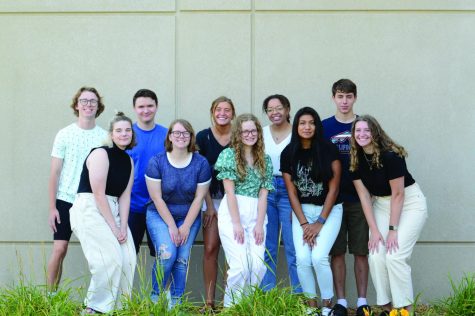Votes are essential in electing student representatives
March 13, 2019
Last year’s Students’ Association presidential election was uncontested, and less than 4 percent of the student body voted for Allyson Monson and Spencer Harwood into office.
This year, Monson is running with Corey Berscheit; but this time the election is contested by Carter Hunter and Amanda Husted — and hopefull,y voter turnout numbers will reflect it.
Student apathy is in no way the senators’ fault. They reach out to constituents via the Rabbit Report, conversations, surveys and various other outreach efforts — but students simply don’t care, or maybe they just don’t know why voting matters.
Some students found themselves a bit more motivated to get to know their senators when they realized the General Activity Fee (GAF) was increasing and SA was controlling what allocations went where.
It seems that students only talk about SA when they’re upset or disagree with something SA has done or voted on. However, students are only angry after the fact, and like to throw around a “lack of transparency” claim, even though they were the ones who consciously clicked past weekly emails containing the information they claim SA was being ambiguous about.
We, at The Collegian, are worried that the apathy students show about SDSU’s student government elections will reflect the type of citizens they will be when voting legislatures into office in their communities.
This isn’t only a problem at SDSU.
In 2016, 1,813 students voted for SDSU’s SA president and vice president. That same year at USD, only 988 students voted in its student government election.
In 2017, the last time SDSU had a contested election, 2,102 students voted, which is just over 17 percent of the total student body. At USD, 1,137 students voted for president and vice president.
This isn’t normal responsible adult behavior. In the 2016 Brookings County election, more than 71 percent of registered voters cast ballots. In 2018 more than 64 percent showed up — presumably because voters realize the representatives they elect play a monumental role in passing legislation that directly impacts them.
SA decides where GAF money goes. Senators write and pass legislation that they lobby in Pierre, and those senators can’t possibly talk to every single one of their constituents regarding every single resolution — which is why it’s pertinent that students know and attempt to talk with their representatives.
This editorial is our call to action. Don’t simply wait until things don’t go your way to actively follow Students’ Association.
Polls are open from 8 a.m. to 5 p.m. March 19 and 20 at polling booths around campus as well as online from 8 a.m. to 5 p.m. at saelection.sdstate.edu.
The Collegian Editorial Board meets weekly and agrees on the issue of the editorial. The editorial represents the opinion of The Collegian.






















